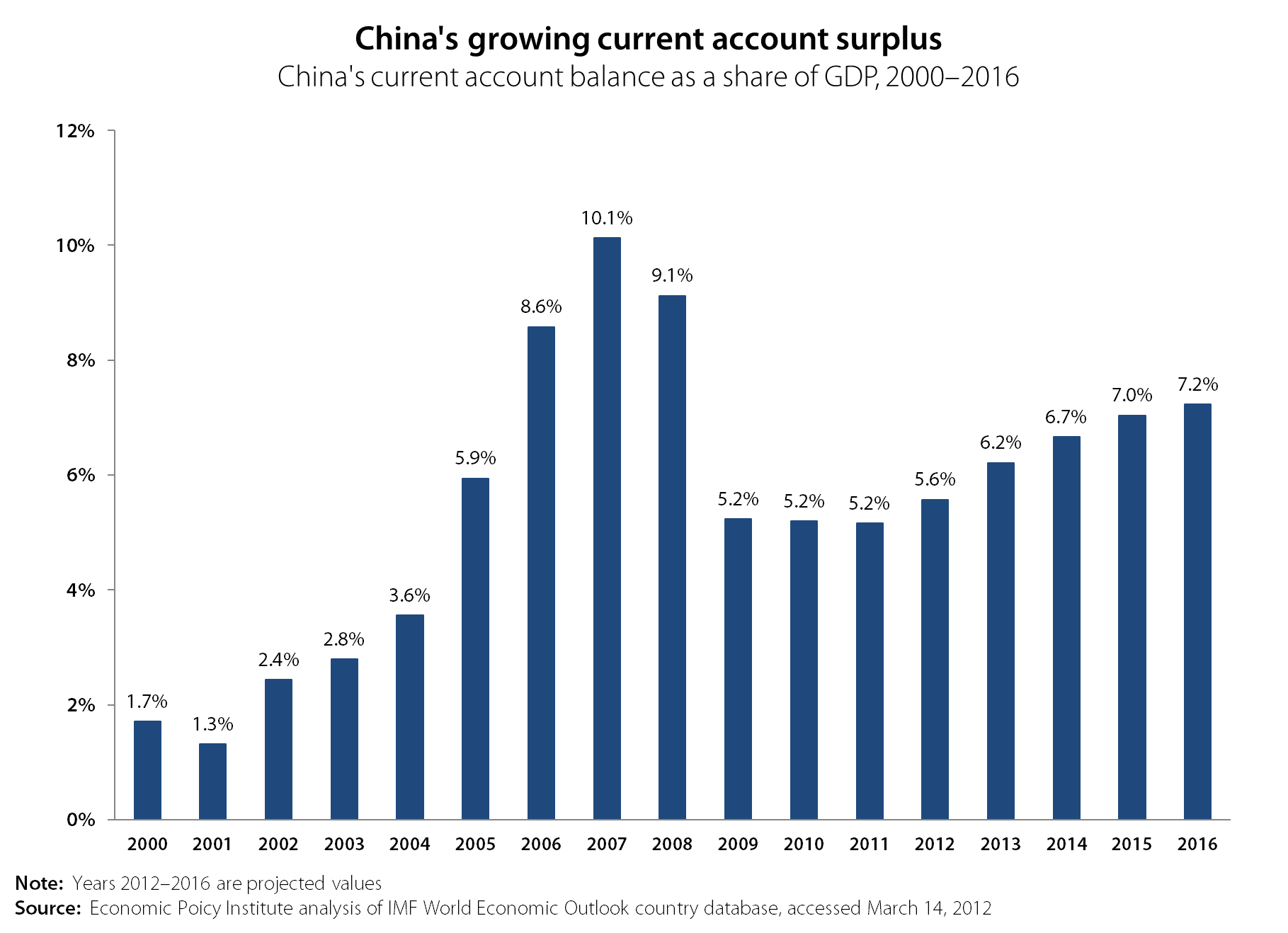China continues to lean against the wind on need for currency revaluation
Chinese Premier Wen Jiabao claimed in remarks Wednesday that the yuan’s exchange rate may be close to an equilibrium level. Premier Wen claimed China has already achieved basic balance in international payment, which he defined as a current account surplus below 3 percent of gross domestic product. However, recent data and forecasts from the International Monetary Fund show that although China’s current account surplus is still recovering from the recession, it has never fallen below 5.2 percent of GDP. The IMF projects that China’s current account balance will increase to 7.2 percent of GDP by 2016.
Recent estimates by William R. Cline and John Williamson of the Peterson Institute show that China’s currency remains at least 24 percent undervalued relative to the U.S. dollar. Although China’s currency has been allowed to fluctuate against other currencies, China firmly controls the value of the yuan against the dollar, because the United States is the chief market for China’s exports. Recent appreciation in the yuan (also known as the renminbi) has not been sufficient to reduce China’s global trade surplus to a sustainable level. In 2011, the U.S. trade deficit with China reached $301.6 billion, 14.6 percent more than in 2010. In Jan. 2012, the monthly U.S. trade deficit with China increased again to $26.0 billion, an increase of 12.6 percent over levels in Dec. 2011.
China invested over $330 billion in purchases of new foreign exchange reserves in 2011, and historically about two-thirds of those reserves have been held in U.S.-dollar denominated assets. China is illegally intervening in foreign exchange markets to artificially suppress the value of its currency against the dollar and other currencies. This acts like a subsidy on all Chinese exports, and a tax on all U.S. exports to China. It also limits U.S. exports to every other country in the world because China is our top competitor in world export markets.
History demonstrates that China will not significantly revalue the yuan unless it is faced with threats of significant tariffs or other trade restraints. Congress threatened to impose tariffs in 2005, when the currency was even more undervalued, and China began to revalue but then stopped. Now, China is declaring the problem solved when in reality, it’s far from solved.
Paul Krugman has denounced China for its “predatory” trade policies. Fred Bergsten has described China’s currency intervention as the “largest protection measure adopted by any country since the Second World War – and probably in all of history.” Taking strong measures to end China’s currency manipulation will be good for Chinese consumers because it will lower prices of oil and other commodities in China. It will also create more jobs in the United States and other countries, because it will increase exports and shrink trade deficits. The time has come for the United States to declare China a currency manipulator and to threaten large, across-the-board tariffs unless and until they revalue enough to shrink their massive global trade surpluses.

Enjoyed this post?
Sign up for EPI's newsletter so you never miss our research and insights on ways to make the economy work better for everyone.